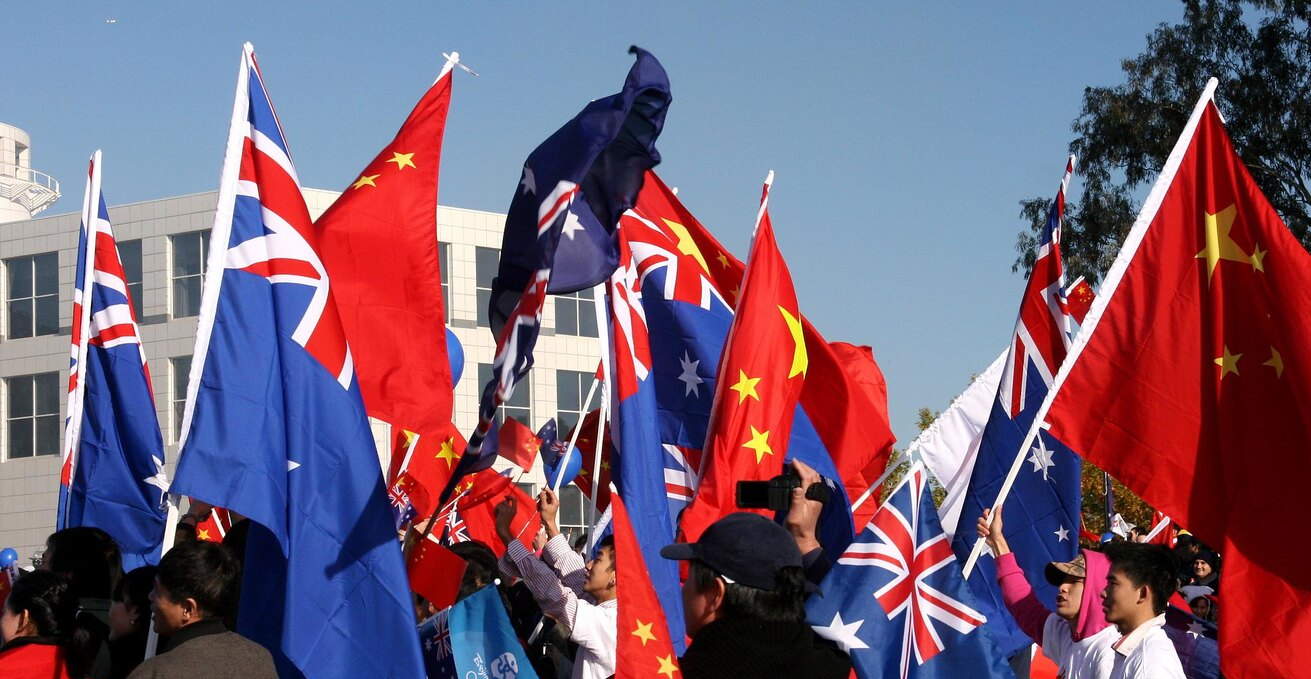Expectation Management As The Key To The Future Australia-China Relations

Anthony Albanese led the Labor party to government at the federal election in May 2022. There now seem to be some signs of warming relations between Australia and China.
On 23 May, Premier Li Keqiang sent a congratulatory message to Albanese on his election as prime minister of Australia. In June, Australian Deputy Prime Minister and Defence Minister Richard Marles and Chinese Defence Minister Wei Fenghe held landmark meetings during the Shangri-la Dialogue hosted by the International Institute for Strategic Studies. This marked the end of a two-year diplomatic freeze between Canberra and Beijing at the ministerial level.
More recently, China’s new ambassador to Australia, Xiao Qian, further extended the olive branch to Canberra when he gave a public speech at the University of Technology Sydney (UTS). Ambassador Xiao stated that “looking into the future, China-Australia relations include good potential for cooperation and bright prospects.”
But could these events mean a possible thawing of Australia and China’s political relations? And how will the two governments attain the relationship they want? Both governments should start by carefully managing their expectations of each other and working to mitigate misunderstandings through diplomacy first.
The marginalisation of diplomacy and mismanagement of expectations both contributed to the well-documented downward spiral that Australia-China relations have been caught in for the last few years. Unrealistic expectations can lead to disappointment, and communication is a way to reduce this expectation gap.
In his congratulatory message to the new prime minister, Premier Li expressed willingness “to promote the sound and steady growth of the China-Australia comprehensive strategic partnership.” While it might mark Beijing’s goodwill to the new government in Canberra, the re-advocacy of a comprehensive strategic partnership (CSP) could be another cage for the two countries in the future.
The two governments established a formal strategic partnership in 2013 and upgraded to a CSP in 2014. For China, the upgrade implied a more intimate relationship, and subsequently China had a higher expectation of Australia’s actions and role performance in this relationship.
Therefore, the recommitment of the CSP implies Beijing is willing to restore the currently frozen bilateral diplomatic mechanisms, including the institutionalised ministerial dialogue channels, to remove the economic sanctions. It also reflects Beijing’s expectation that Canberra make decisions with consideration of their intimate relationship and Beijing having the leeway to determine its own specific values or institutions when interacting with Australia.
However, Beijing should rethink its expectation from the ground up and ask itself whether having a CSP with a country like Australia is still realistic, given Canberra has clearly gravitated towards the United States when presented with great power competition. In other words, it would be impossible for the power of moral constraints brought by the partnership to mediate Canberra’s attitude and actions.
Also, if the framework of CSP denotes the country’s strategic importance to China, then Beijing should re-assess Australia’s importance. Is Australia still a country that provides China with the sustainable market access, resources, and investment opportunities?
This diplomatic deterioration has seen Australia ban Chinese providers from the Australian 5G network, declining Chinese direct investment in Australia, and China make a conscious effort to offset its mineral dependence on Australia, such as by developing an iron ore hub in Guinea. China is a strategic competitor to the US, but that doesn’t automatically make it so for Australia. In some circumstances, Australia’s strategic interests cannot be achieved without a functioning, constructive relationship with China. But Canberra should refuse Beijing’s initiative of a CSP in a tactful and firm manner.
Canberra cannot commit to cultivating the CSP by complying with Beijing’s expectations because neither the international nor the domestic political climate allow the government to do it. For example, it would be unlikely for the new government to revise its regional security policy nor to cease questioning Beijing’s human rights records. Therefore, the Australian government can neither let the partnership become an ethical restraint on its own foreign policy, nor a reason for Beijing to hold unrealistic expectations about Australia.
Rejecting a CSP does not necessarily mean a deteriorating relationship with China. Rather, it is a starting point to managing expectations as it would give Beijing clues about what kind of relationship Australia wants. It would also help both sides to keep a safe distance and maintain a more sustainable relationship.
Former US Secretary of State Colin Powell rejected the notion that China was a strategic partner. In 2001, during his Senate confirmation hearing, Powell emphasised that “neither is China our inevitable and implacable foe…but also a trading partner willing to cooperate in the areas where our strategic interests overlap.” It was with these well-managed mutual expectations of each other that the US relationship with China reached a healthy state – as Powell stated, “the best in over three decades.”
Since November 2020, Australian bureaucrats and policy analysts have constantly expressed concern about the so-called Fourteen Grievances as Beijing’s preconditions for Australia to restore normal diplomatic relations with China. For them, it was a signal that Beijing was attempting to compel Australia to abandon its sovereign interests, values, and independence.
Given this, one of the most important takeaways from Ambassador Xiao’s speech at UTS is that he explicitly rejected the notion of “grievances.” According to Xiao, the fourteen points are China’s concerns in its relations with Australia but have been misinterpreted as preconditions or demands. This remark reflects Beijing’s adjustment of expectations of Canberra, as well as sending a clue for Australia’s response.
To reciprocate Beijing’s goodwill, Canberra might need to adjust its expectations too. For example, the Albanese government may need to accept that the removal of the economic pressure and sanctions should not be a precondition for resuming the ministerial dialogue but is a result of the positive reciprocity.
In his speech at the welcoming banquet in Beijing in February 1972, President Richard Nixon quoted Mao Zedong, “Ten thousand years are too long, we should seize the day, seize the hour.” He highlighted the lower-profile and low-expectation diplomatic efforts both governments were making to achieve rapprochement. Both sides embraced the common interests, and felt ideologically more open, but never lost sight of the considerable differences in values. Today, this should also be the spirit for Chinese and Australian leaders to follow in building a build a candid, cooperative, and constructive relationship.
Dr Ye Xue is a sessional teaching fellow at the University of Sydney. He also holds a casual research role at Australia National University. He specialises in non-Western international relations theory, Chinese foreign policy, Australia-China relations, and sports politics.
This article is published under a Creative Commons Licence and may be republished with attribution.





